#physical culture
Text






All Sorts a Vintage Muscle
#vintage men#old school bodybuilding#vintage muscle#vintage male#beef cake#physical culture#fitness#male model#male muscle#muscle#alpha muscle#flexing#1950s#bodybuilders
77 notes
·
View notes
Text


Charles Bronson & Jill Ireland 1971 (colorized)
8 notes
·
View notes
Text
#fitness#conditioning#strength#health#exercise#workout#fitnessmotivation#workoutmotivation#bodybuilding#fred rollon#physical culture#muscle building#muscles#old school#Lifeline Fitness#spring loaded#fatloss#weightloss#shoulders#back#arms#biceps#triceps
2 notes
·
View notes
Text
From the archives of the Hyenoid Museum of Physical Culture:
Rattle composed of Yuan-ti vertebrae
Donated in honor of Gnaw-Gnaw, tribal matriarch
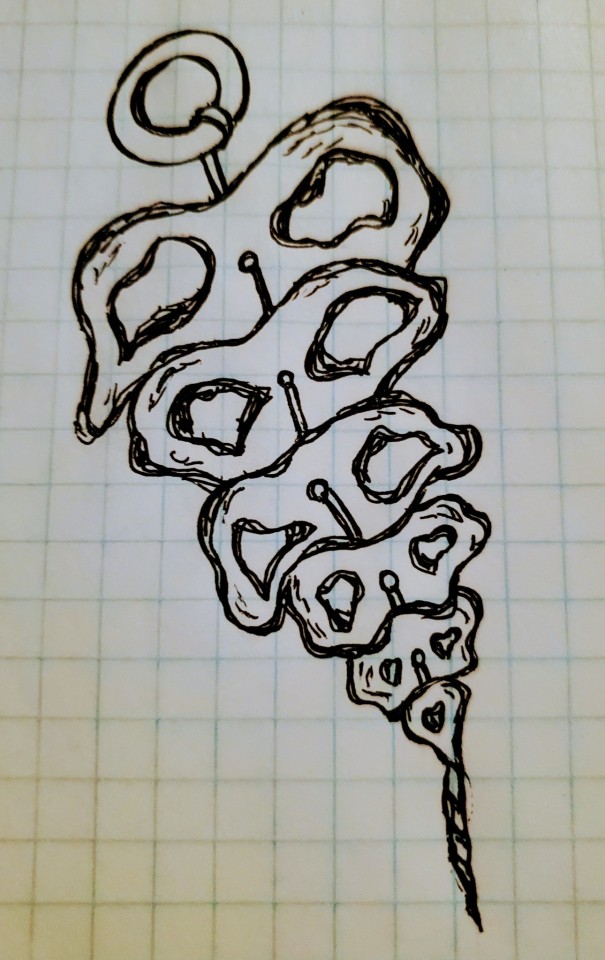
Nearly all cultures create images of their infants holding a symbolic representation of "baby". This object generally resembles a common infant accessory or toy created from a precious substance, in contrast to the mundane composition of its analogue. The Gnoll are no exception.
Within human culture, a silver rattle is a common heirloom. Among Bugbears, combs carved from precious ores are prized. Gnolls honor the hunting prowess of their tribemates by crafting symbolic toys out of the bones, then gifting the toys to that hunter's child upon birth. As these toys are used only for symbolic purposes, it is rare that any are lost or broken. Therefore, images of a Gnoll infant from a notable lineage often depict the child perched upon a mound of toys as if it were a throne.
3 notes
·
View notes
Text
the fact that shakespeare was a playwright is sometimes so funny to me. just the concept of the "greatest writer of the English language" being a random 450-year-old entertainer, a 16th cent pop cultural sensation (thanks in large part to puns & dirty jokes & verbiage & a long-running appeal to commoners). and his work was made to be watched not read, but in the classroom teachers just hand us his scripts and say "that's literature"
just...imagine it's 2450 A.D. and English Lit students are regularly going into 100k debt writing postdoc theses on The Simpsons screenplays. the original animation hasn't even been preserved, it's literally just scripts and the occasional SDH subtitles.txt. they've been republished more times than the Bible
#due to the Great Data Decay academics write viciously argumentative articles on which episodes aired in what order#at conferences professors have known to engage in physically violent altercations whilst debating the air date number of household viewers#90% of the couch gags have been lost and there is a billion dollar trade in counterfeit “lost copies”#serious note: i'll be honest i always assumed it was english imperialism that made shakespeare so inescapable in the 19th/20th cent#like his writing should have become obscure at the same level of his contemporaries#but british imperialists needed an ENGLISH LANGUAGE (and BRITISH) writer to venerate#and shakespeare wrote so many damn things that there was a humongous body of work just sitting there waiting to be culturally exploited...#i know it didn't happen like this but i imagine a English Parliament House Committee Member For The Education Of The Masses or something#cartoonishly stumbling over a dusty cobwebbed crate labelled the Complete Works of Shakespeare#and going 'Eureka! this shall make excellent propoganda for fabricating a national identity in a time of great social unrest.#it will be a cornerstone of our elitist educational institutions for centuries to come! long live our decaying empire!'#'what good fortune that this used to be accessible and entertaining to mainstream illiterate audience members...#..but now we can strip that away and make it a difficult & alienating foundation of a Classical Education! just like the latin language :)'#anyway maybe there's no such thing as the 'greatest writer of x language' in ANY language?#maybe there are just different styles and yes levels of expertise and skill but also a high degree of subjectivity#and variance in the way that we as individuals and members of different cultures/time periods experience any work of media#and that's okay! and should be acknowledged!!! and allow us to give ourselves permission to broaden our horizons#and explore the stories of marginalized/underappreciated creators#instead of worshiping the List of Top 10 Best (aka Most Famous) Whatevers Of All Time/A Certain Time Period#anyways things are famous for a reason and that reason has little to do with innate “value”#and much more to do with how it plays into the interests of powerful institutions motivated to influence our shared cultural narratives#so i'm not saying 'stop teaching shakespeare'. but like...maybe classrooms should stop using it as busy work that (by accident or designs)#happens to alienate a large number of students who could otherwise be engaging critically with works that feel more relevant to their world#(by merit of not being 4 centuries old or lacking necessary historical context or requiring untaught translation skills)#and yeah...MAYBE our educational institutions could spend less time/money on shakespeare critical analysis and more on...#...any of thousands of underfunded areas of literary research i literally (pun!) don't know where to begin#oh and p.s. the modern publishing world is in shambles and it would be neat if schoolwork could include modern works?#beautiful complicated socially relevant works of literature are published every year. it's not just the 'classics' that have value#and actually modern publications are probably an easier way for students to learn the basics. since lesson plans don't have to include the#important historical/cultural context many teens need for 20+ year old media (which is older than their entire lived experience fyi)
23K notes
·
View notes
Text

#Arthur Saxon#strongman#strength athlete#physical culture#literature#non fiction#Spanish#male body positivity#don't try this at home#black and white#vintage
0 notes
Text
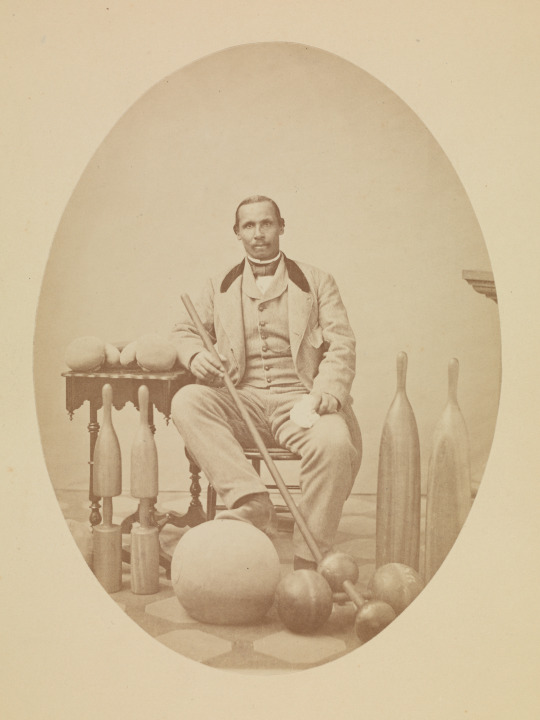
Photograph of Harvard University Gymnasium Coach Aaron Molyneaux Hewlett, 1859
#Aaron Molyneaux Hewlett#Harvard University#physical culture#photographs#portraits#albumen prints#athletics#history#Massachusetts#American#North America#1850s#civil war era#19th century
1 note
·
View note
Photo
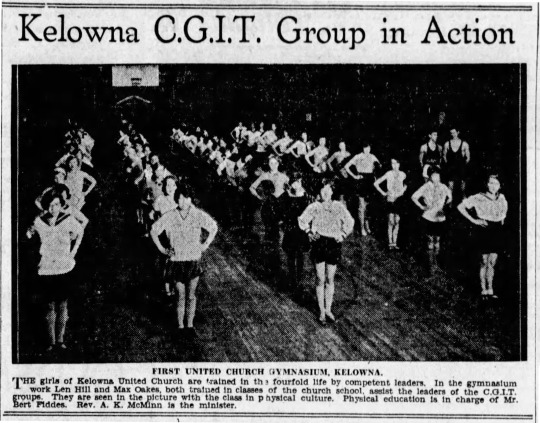
“Kelowna C.G.I.T. Group in Action,” The Province (Vancouver). March 7, 1931. Page 5.
----
FIRST UNITED CHURCH GYMNASIUM, KELOWNA.
----
THE girls of Kelowna United Church are trained in the fourfold life by competent leaders. In the gymnasium work Len Hill and Max Oakes, both tralued in classes of the church school, amidst the leaders of the C.G.I.T. groups. They are seen in the picture with the class in physical culture. Physical education is in charge of Mr. Bert Fiddes. Rev. A. K. McMinn is the minister.
#kelowna#united church of canada#gymnasium#physical education#gym class#physical culture#sports in canadian history#disciplining bodies#disciplining youth#physical fitness#great depression in canada
0 notes
Text



#collage inspiration#collage material#vintage illustration#vintage magazine#antique magazine#physical culture#antique fitness magazine
1 note
·
View note
Text
Really interesting response by Reddit user Iphikrates on r/askahistorian to a question that's since been deleted - were ancient soldiers 'fit' according to the modern conception of fitness? Full text below the readmore.
My older answer on Spartans has already been shared by u/OldPersonName. The core of the answer to your question is no. There are no soldiers in ancient history who trained their bodies as hard or looked as toned as your boyfriend likes to imagine. The reasons are firstly that the bulk of the warriors of antiquity were not permanently engaged in soldiering as a profession and lacked the time or the resources to train very much, and secondly that being very large and strong was not a feature of a good soldier. Fighting makes up only a very small part of what a soldier does, and overspecialising in combat prowess would make these soldiers more of a liability than an asset.
On the first point, the vast majority of the warriors in any army of a Greek city-state or the Roman Republic would be drafted for the occasion. In the Greek case, this meant being called up to muster for a campaign that had already been declared, carrying three days' rations. These warriors were ordinary people until that call came; they had lives to live, jobs to do, families to feed, and so on. They had little time to train and received no collective training when they were called up to fight. Their physique and fitness were only as good as their regular daily activities had made them. Both Xenophon and Plato complain that while poor farmers and wage-earners are generally up to the task, the rich, the young and the old are often unfit for duty. Still, they had to serve.
It is my understanding that the Roman legions of the Republic also were not composed of professionals but of citizens who received no training before they were called up. Their capacity as warriors grew only with prolonged service. They trained on campaign - if there was time. Evidence for systematic drill and exercise only survives for the professional Roman army of later centuries.
The only exceptions were the small standing units that were maintained by some Greek states from the later 5th century BC onwards, who were expected to spend some or all of their time training for war. It seems their training, like that of the Spartans, was not specific to warfare or fighting, but was broadly athletic: running, jumping, wrestling, discus-throwing, and the like. The veteran commander Xenophon also recommends dancing as a good general exercise for the body and hunting as a good preparation for war. A small minority of people believed it was possible train warriors specifically in heavy infantry fighting, but these were generally mocked until the 4th century BC, when they are seen playing a minor role in the various civic training programmes that pop up in the Hellenistic period. In these programmes there would be more targeted training for skills like archery or fighting on horseback, but only for the small minority of people who could afford it.
The people who underwent such training would likely have been reasonably fit. But there is no reason to assume they would be much more fit than anyone else who worked a strenuous job or exercised daily (let alone a modern person with regular access to a nutritious diet, medical care, and body enhancements like rubber-soled shoes, contact lenses, etc.). A citizen who had been through one of these Hellenistic training programmes was not treated as stronger or more intimidating than an ordinary person. The purpose of these training programmes wasn't to make citizens into hulking brutes, but to train them in civic values like discipline, obedience, moderation, and love for the customs of their city. Basic training in the use of weapons was one of the paths toward that goal. It was an innovation on the Spartan training regime, which tried to instill civic virtues without any apparent attempt to teach fighting skill.
It's also important to stress that Spartans (about whose exercise regime we know more than others) certainly did not train all day every day. In fact they probably only spent a minority of their time exercising. It is said that Spartans often welcomed the call to go on campaign, because it meant they would only be required to exercise once a day instead of twice. Far more of their time was spent managing their personal affairs (their estate, their horses and dogs, and their personal network) as well as dining and drinking with their messmates. This was far more effective at creating a cohesive society of citizen warriors.
On the second point, it was generally understood that athletes who devoted all their time and energy to growing muscle mass and strength made bad soldiers. These men were seen as overspecialised, slow, sluggish, needy, and dependent on an excess of food and sleep. There was no meaningful advantage in soldiering that could make such warriors worth cultivating. Anyone who naturally grew large or strong would no doubt be welcomed - if he could bear the burdens of soldiering. But men who created size and strength artificially through constant effort were worthless to a commander.
It is easy to understand why the Herakles type of muscle-bound giant was so disparaged by military thinkers. Battle and fighting is a tiny sliver of the practice of war. Many Greeks might never fight a pitched battle in their entire lives; even if they did fight one or two, the majority of men were not stationed in the front ranks and would rarely do any actual fighting. Cavalrymen did far more fighting than infantry, but even they would spend the vast majority of their time on other things. When it comes to raising good soldiers, the question is not: who would be the most effective in a brawl? Infinitely more important than size and strength are qualities that make a man fit to bear the real challenges of military service. Who can go for days without food? Who can march all day without water? Who can stand for hours in the summer sun? Who will keep a reliable watch through the night in driving snow? Who can carry his pack and his wounded comrades on a forced march through the mountains - and then fight a battle before breakfast? Who will stand and keep his place in the ranks even when his best friends are dying around him?
The Greeks understood that a general fitness, stamina and self-discipline combined with strong moral fibre were far more important for a warrior than raw strength or weapon skill. In most cases they could not choose; their armies were made up of levies and volunteers from all walks of life, who had trained little for warfare, if at all. But when they started to introduce training for their soldiers, the training regimes reflect their priorities. These are not regimes aimed at creating the biggest, strongest, fastest, or most lethal fighters. They are aimed at fostering endurance, agility, flexibility, and most importantly, commitment to the cause.
Finally, I should add that perhaps your boyfriend is also imagining what a Greek sculpture actually looks like. While there are some extreme cases of excessive musculature, these are usually depictions of Herakles, a literally superhuman symbol of strength. The ideal male body is not exceptionally massive. It is toned, to be sure, but much more balanced and slender than the product of modern strength routines. I think there is a conflation of categories at work here: the statements "Greek statues represent a masculine ideal" and "the masculine ideal is maximal muscle mass and tone" have merged to become "Greek statues represent maximal muscle mass and tone." But this is not actually true, except in a few rare cases that did not reflect ideals held by the Greeks, and certainly did not reflect the reality of soldiers soldiering.
1 note
·
View note
Text




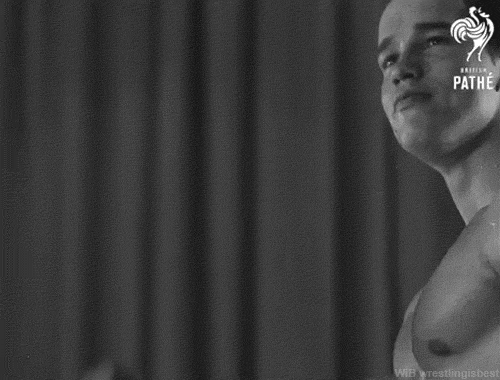
Old School
#gym motivation#old school bodybuilding#old school#classic bodybuilding#vintage male#vintage men#biceps#bicep curls#barbell curls#bodybuilders#bodybuilding#male muscle#physical culture#beefcake#flex#men#arnold schwarzenegger
17 notes
·
View notes
Text
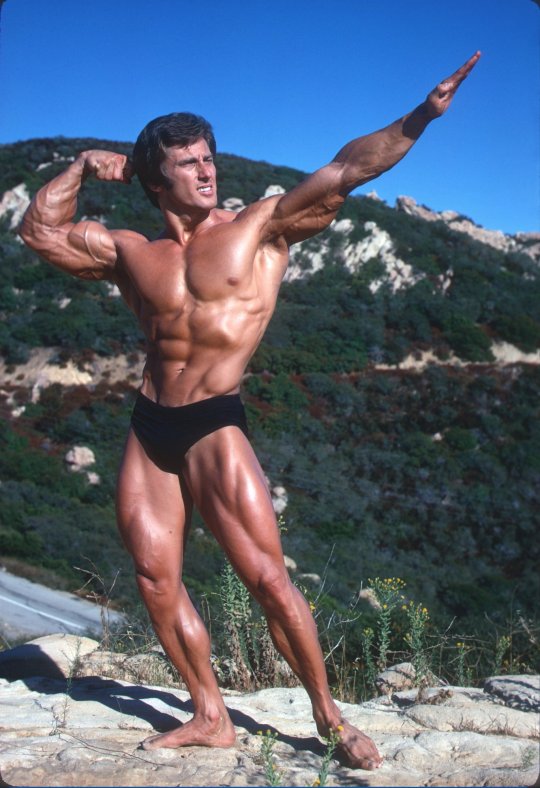
Frank Zane
11 notes
·
View notes
Text
Hate (affectionate) how it's made so clear from the very beginning of part 1 just how loved Paul is by his family and household. Both his parents, Duncan, Gurney, Thufir, even Dr Yueh all clearly care so deeply for this kid, and we're shown that time and time again.
Cut to the end of part two, and almost every one of those people is gone. The only ones who remain are a weird, came-back-wrong version of Jessica, and Gurney who has gone from mentor to worshipper. Paul goes from someone deeply loved and valued for who he is by a small but caring group of people - to someone followed and worshipped and feared by thousands. They're obsessed with him in a way, as a leader and "messiah", but nobody loves him.
The only one remaining who loves him for who he is is Chani, who leaves him because in the end that love isn't enough to bring who he is back.
#dune#dune part 2#paul atreides#i am losing my MIND#upon rewatching part 1 it struck me just HOW loved paul is. and then you contrast that with his horde of followers in part 2#none of whom will so much as touch him when he's injured badly enough that he can barely walk#he's not human anymore. he's just an idea.#i am in physical pain#something something it's about parasocial relationships & celebrity culture#like idk if that was frank or denis' intention but. i see a bit of That.
3K notes
·
View notes
Text
shoutout to every person who deals with incontinence. i dealt with bedwetting up until my early teens, and now deal with stress and urge incontinence and for years never wanted to talk about it because of the shame and stigma other people place on not being able to control your bladder or bowel movements.
incontinence is a disability. it's not gross or wrong to talk about incontinence. incontinent people are not dirty or disgusting. if we could control these parts of our body, we would. we're not an inconvenience for being this way, and we don't have to be treated like a burden or like we need to be "fixed".
whether or not you use incontinent products like briefs, pads, diapers, plastic bed sheets, or whatever else, you are loved, important, and deserved to be seen when there are conversations about disability awareness and acceptance. we don't deserve to hide in shame when all we need is to be accommodated and accepted.
#cripple punk#disability culture#cripplepunk#incontinence#disability#disabled#physically disabled#hypermobile ehlers danlos#actually hypermobile#hypermobile eds#arthritis#chronic illness#chronically ill#chronic pain#crip punk#our writing#chronic fatigue
5K notes
·
View notes

